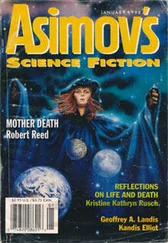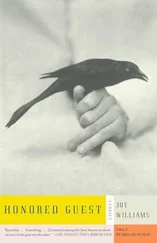Joy Williams - Taking Care
Здесь есть возможность читать онлайн «Joy Williams - Taking Care» весь текст электронной книги совершенно бесплатно (целиком полную версию без сокращений). В некоторых случаях можно слушать аудио, скачать через торрент в формате fb2 и присутствует краткое содержание. Год выпуска: 2010, Издательство: Vintage, Жанр: Современная проза, на английском языке. Описание произведения, (предисловие) а так же отзывы посетителей доступны на портале библиотеки ЛибКат.
- Название:Taking Care
- Автор:
- Издательство:Vintage
- Жанр:
- Год:2010
- ISBN:нет данных
- Рейтинг книги:5 / 5. Голосов: 1
-
Избранное:Добавить в избранное
- Отзывы:
-
Ваша оценка:
- 100
- 1
- 2
- 3
- 4
- 5
Taking Care: краткое содержание, описание и аннотация
Предлагаем к чтению аннотацию, описание, краткое содержание или предисловие (зависит от того, что написал сам автор книги «Taking Care»). Если вы не нашли необходимую информацию о книге — напишите в комментариях, мы постараемся отыскать её.
Taking Care — читать онлайн бесплатно полную книгу (весь текст) целиком
Ниже представлен текст книги, разбитый по страницам. Система сохранения места последней прочитанной страницы, позволяет с удобством читать онлайн бесплатно книгу «Taking Care», без необходимости каждый раз заново искать на чём Вы остановились. Поставьте закладку, и сможете в любой момент перейти на страницу, на которой закончили чтение.
Интервал:
Закладка:
Late that night, Constance woke to hear music from Steven’s tape deck in the next room. The night was very hot. Beyond the thin curtains was a fat bluish moon.
“That’s the saddest piece of music I’ve ever heard,” Constance said. “What is that music?”
“Beethoven,” Ben said. “It’s pretty sad all right.”
The children came into the room and shook Constance’s shoulder. “Mummy,” Jill said, “we can’t sleep. Mercedes told us that last year she tried to kill herself with a pair of scissors.”
“Oh!” cried Constance, disgusted. She took the girls back to their room. They all sat on a bed and looked out the window at the moon.
“Mercedes said that if the astronaut Gus Grissom hadn’t died on the ground in the Apollo fire, he would probably have died on the moon of a heart attack,” Charlotte told Constance. “Mercedes said that Gus Grissom’s arteries were clogged with fatty deposits, and that he carried within himself all the prerequisites for tragedy. Mercedes said that if Gus Grissom had had a heart attack on the moon, nobody in the whole world would be able to look up into the sky with the same awe and wonder as before.”
Jill said, “Mercedes said all things happen because they must happen.”
“I’d like to sock Mercedes in the teeth,” Constance said.
Constance had not seen Steven for days. She had only heard the sound of his typewriter, and sometimes there was a glass in the sink that might have been his. Constance had an image in her mind of the Coke bottle caught in the venetian-blind cord tapping out incoherent messages at the end of On the Beach. She finally went up to his room and knocked on the door.
“Yo!” Steven yelled.
Constance was embarrassed about disturbing him, and slipped away without saying anything. She went upstairs to the girls’ room and looked out the window. A man stood by the mailbox, scrutinizing the pickup hours posted on the front and shaking his head.
Annie came with her child, Nora. Nora was precocious. She was eight, wore a bra, had red hair down to her kneecaps and knew the genuine and incomprehensible lyrics to most of the New Wave tunes. She sang in a rasping, wasted voice and shook her little body back and forth like a mop. Annie looked at Nora as she danced. It was an irritated look, such as a wife might give a husband. Constance thought of David. She had been so bored with David, but now she wondered what it had been, exactly, that was so boring. It was difficult to remember boring things. David had hated mayonnaise. The first thing he had told Constance’s mother when they met was that he had owned forty cars in his life, which was true.
“Do you ever think about Susan?” Constance asked Ben.
“She’s on television now,” Ben said. “It’s a Pepsi-Cola commercial but Susan is waving a piece of fried chicken.”
“I’ve never seen that commercial,” Constance said sincerely, wishing she had never asked about Susan.
Annie was an older woman with thick, greying hair. She seemed more impatient than the others for Steven to knock off and get on with it.
“He’s making a miraculous synthesis up there, is he?” Annie said wryly. “Passion, time? Inside, outside?”
“Are you in love with Steven?” Constance asked.
“I’ve found,” Annie said, “that Love seldom serves one’s purposes.”
Constance thought about this. Perhaps Love was neither the goal nor the answer. Constance loved Ben and what good did that do him? He had just almost died from her absorption in him. Perhaps understanding was more important than Love, and perhaps the highest form of understanding was the understanding of oneself, one’s motives and desires and capabilities. Constance thought about this but the idea didn’t appeal to her much. She dismissed it.
Annie and Nora were highly skilled at a little parlor game in which vowels, numbers and first letters of names would be used by one person, in a dizzying polygamous travelogue, to clue the other as to whispered identities.
“I went,” Annie would say, “to Switzerland with Tim for four days and then I went to Nome with Ernest.”
“Mick Jagger!” Nora would yell.
Jill, glaring at Nora, whispered in Annie’s ear.
“I went,” Annie said, “to India with Ralph for a day before I met Ned.”
“The Ayatollah Khomeini!” Nora screamed.
Charlotte and Jill looked at her, offended.
That evening, everyone went out except Constance, who stayed home with Nora.
“You know,” Nora told her, “you shouldn’t drink quinine. They won’t let airline pilots drink quinine in their gin. It affects their judgment.”
That afternoon, downtown with Annie, Nora had bought a lot of small candles. Now she placed them all around the house in little saucers and lit them. She and Constance turned off all the lights and walked from room to room enjoying the candles.
“Aren’t they pretty!” Nora said. She had large white feet and wore a man’s shirt as a nightie. “I think they’re so pretty. I don’t like electrical lighting. Electrical lighting just lights the whole place up at once. Everything looks so dead, do you know what I mean?”
Constance peered at Nora without answering. Nora said, “It’s as though nothing can happen when it’s all lit up like that. It’s as though everything is.”
Constance looked at the wavering pools of light cast by the little candles. She had never known a mystic before.
“I enjoy things best that I don’t have to think about,” Nora said. “I mean, I get awfully sick of using my brain, don’t you? When you think of the world or of God, you don’t think of this gigantic brain, do you?”
“Certainly not,” Constance replied.
“Of course you don’t,” Nora said nicely.
The candles had different aromas. Finally, more or less in order, one after another, they went out. On Sunday, after Nora left with her mother, Constance missed her.
Constance was having difficulty sleeping. She would go to bed far earlier than anyone else, sometimes right after supper, and lie there and not sleep. Once she slept for a little while and had a dream in which the cart she was wheeling through the aisles of the A&P was a crash cart, a complete mobile cardiopulmonary resuscitation unit, of the kind she had seen in the corridors of the intensive-care wing at the hospital. In the dream, she bit her nails as she pushed the cart down the endless aisles, agonizing over her selections. She reached for a box of Triscuits and placed it in the cart between a box of automatic rotating cuffs and a defibrillator. Constance woke up, her own heart pounding. She listened to Ben’s quiet breathing for a moment; then she rolled out of bed, dressed and walked downtown. It was just before dawn and the streets were cool and quiet and empty, but someone, during the night, had pulled all the flowers out of the window boxes in front of the shops. Clumps of earth and broken petals made a ragged trail before her. The wreckage rounded a corner. Constance wished Ben were with her. They could just walk along, they wouldn’t have to say anything. Constance returned to the house and went back to bed. She had another dream in which crews of workmen were cutting down all the trees around their home, back on the mainland, in another state.
The weekend that Gloria arrived was extremely foggy. Gloria was from the South. She was unsmiling and honest, a Baptist who had just left her husband for good. She had been in love with Steven since she was thirteen years old.
“My parents are Baptists,” Constance told her.
Fog slid through the screens. A voice from the street said, “Some dinner party, she served bluefish again!”
Gloria had little calling cards that showed Jesus knocking on the door of your heart. Jesus wore white robes and he had a neatly trimmed beard. He was rapping thoughtfully at the heavy wooden doors of a snug little vine-covered bungalow.
Читать дальшеИнтервал:
Закладка:
Похожие книги на «Taking Care»
Представляем Вашему вниманию похожие книги на «Taking Care» списком для выбора. Мы отобрали схожую по названию и смыслу литературу в надежде предоставить читателям больше вариантов отыскать новые, интересные, ещё непрочитанные произведения.
Обсуждение, отзывы о книге «Taking Care» и просто собственные мнения читателей. Оставьте ваши комментарии, напишите, что Вы думаете о произведении, его смысле или главных героях. Укажите что конкретно понравилось, а что нет, и почему Вы так считаете.












